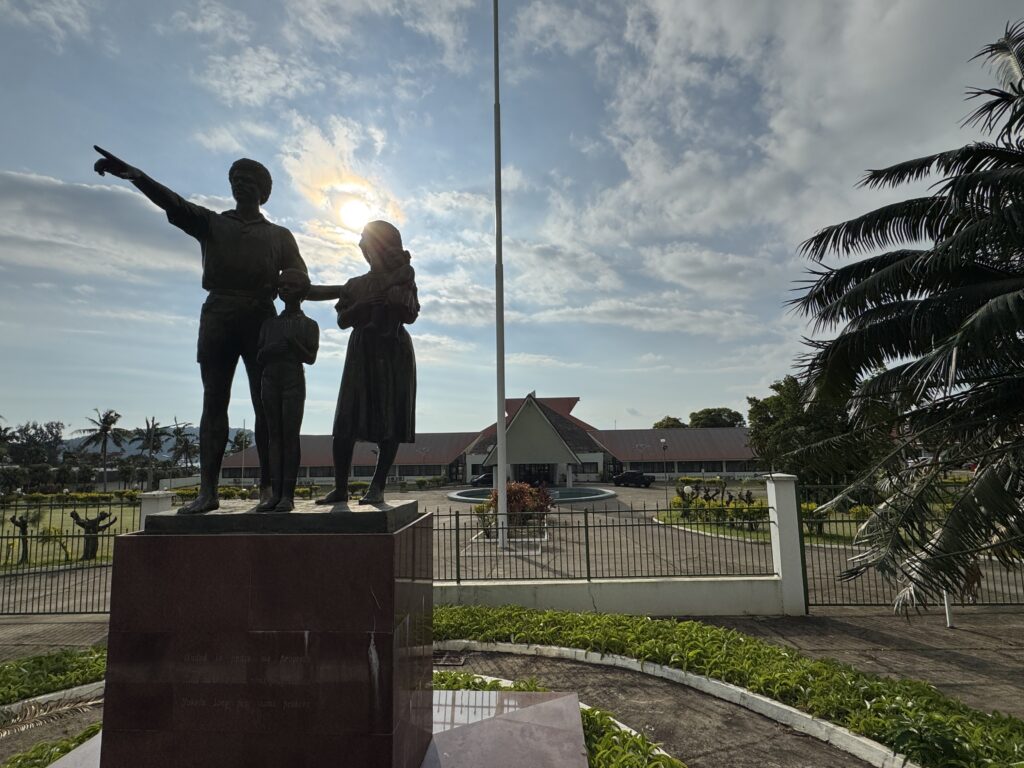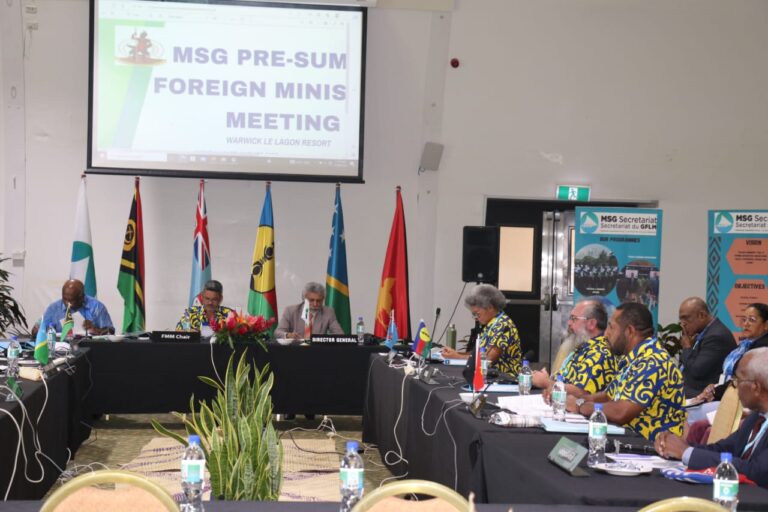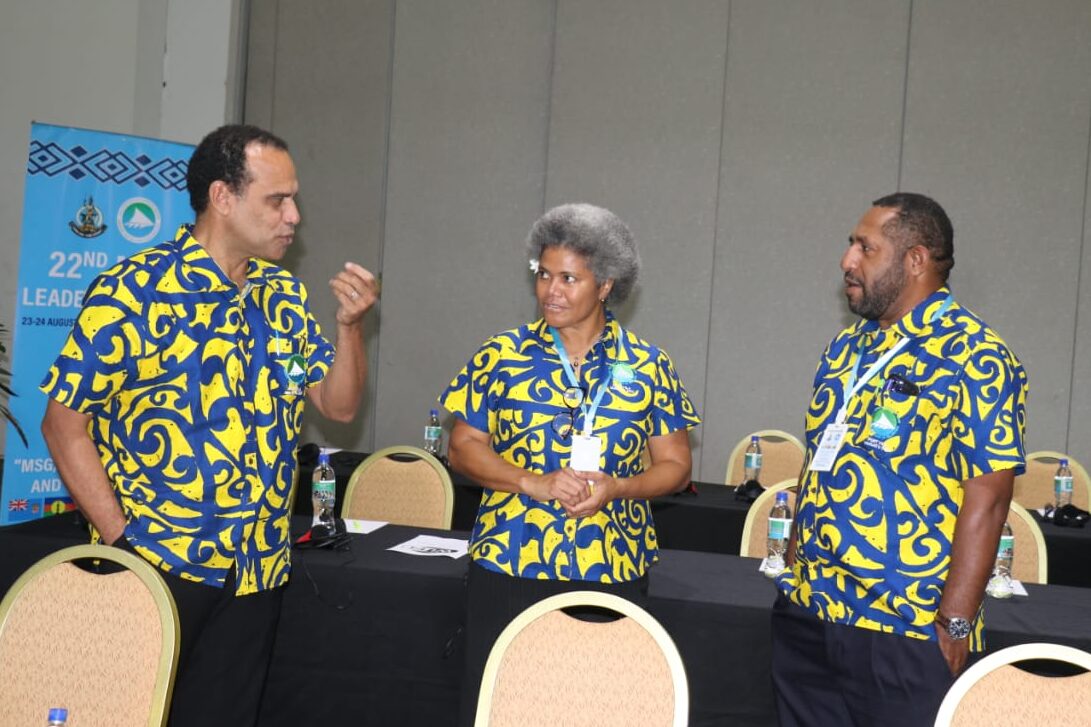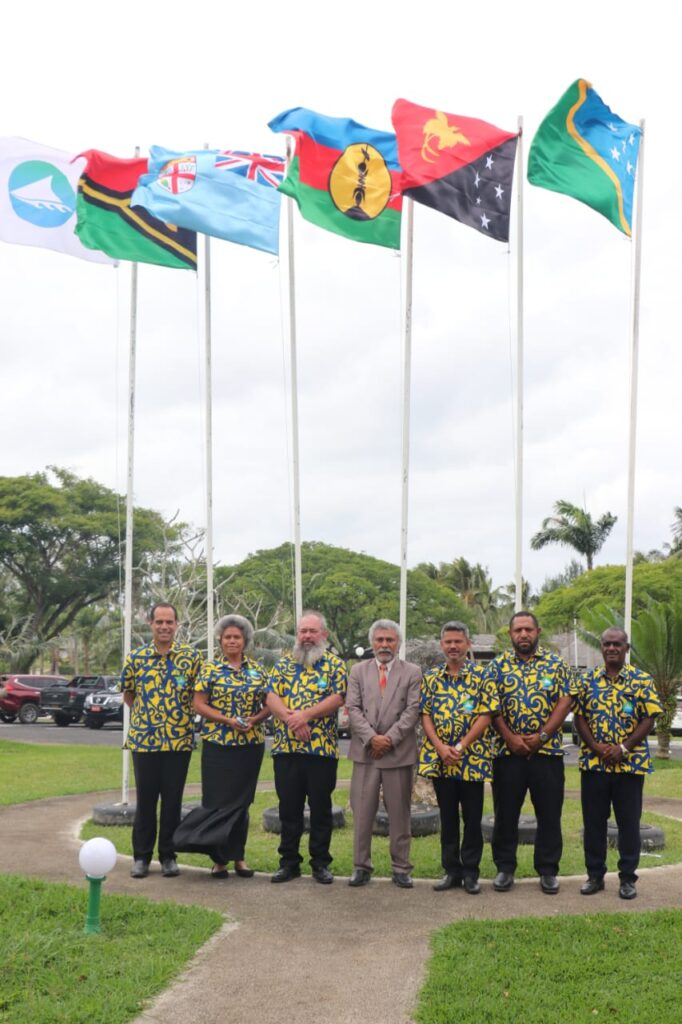A new development pact between Vanuatu and Australia is in the works, with Vanuatu’s prime minister urging Anthony Albanese to visit and sign the deal in September.
Jotham Napat has revealed discussions on the “Nakamal” agreement, taking in infrastructure planning, economic development and climate planning, are in the final stages, after meeting with Foreign Minister Penny Wong in Port Vila.
“We are hoping that we will sign this Nakamal agreement this coming September, and I’m hoping that the prime minister of Australia would fly over so that we can sign this agreement,” he said.
The agreement takes its name from the Bislama word “nakamal”, which means a traditional meeting place, such as a house, in Vanuatu.
Mr Napat said the bilateral relationship had “unshakable foundations”, a fitting phrase given Vanuatu’s attempts to rebound from December’s devastating earthquake.
Senator Wong announced $6 million towards engineering support and rebuilding schools damaged in the 7.3 magnitude tremor.
“Some 45 schools and over 100 classrooms have been damaged and we want to help rebuild them,” she said.
Australia – which has given financial aid and technical support following that disaster – is Vanuatu’s top development assistance partner by a distance.
Australia spent $US1 billion ($A1.6 billion) on projects in Vanuatu in the 15 years to 2022 according to the Lowy Institute, more than double the second-most generous nation, China, with $US449 million ($A697 million).
Senator Wong foreshadowed talks to take place on the partnership before she left on her three-nation tour of the Pacific this week, including stops in Fiji and Tonga.
There was no mention of a stalled security agreement signed between Mr Albanese’s government and a prior Vanuatu administration, headed by Ishmael Kalsakau, in late 2022.
Vanuatu has opted against ratifying that deal, with subsequent governments believing it compromises its non-aligned strategic outlook.
Senator Wong also travelled with the First Nations ambassador Justin Mohamed and met with the National Council of Chiefs.
“What I would say to the leader of Vanuatu, to the prime minister and to his cabinet, to the chiefs and to the people, is that ‘we are a steadfast partner. You can count on us’,” she said.
“You can count on us to act on climate change. You can count on us to help rebuild. You can count on us to work with you as we walk together.”
Mr Albanese already has two Pacific diplomatic engagements this September: the 50th anniversary of Papua New Guinean independence, and the Pacific Islands Forum leaders’ summit in Solomon Islands.
Written by: Ben McKay © Australian Associated Press 2025







